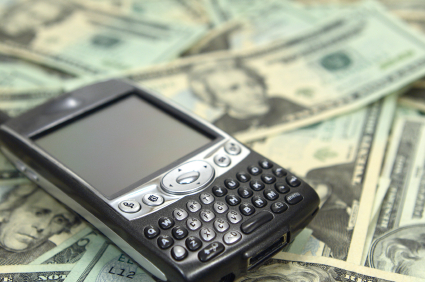
FCC proposes rule designed to identify and prevent unauthorized phone charges.
Are you being over-charged on your monthly phone bill? Chances are that if you have been over-charged, you just haven’t noticed it yet. The Federal Communications Commission (FCC) estimates only five percent of as many as twenty million people over-charged each year ever realize it. Extra charges range from as little as $1.99 to as much as $9.99 for innocuously titled “service charges” or “premium messaging.” In total, over-charges are estimated to cost consumers more than $600 million a year.
“People don’t see it, and if they do see it, they don’t pay attention to it,” according to one FCC spokesperson. “Month after month it adds up to millions of dollars across the country.”
The FCC recently issued new proposed rules designed to protect phone consumers by reducing occurrences of “cramming”—a common telephone billing scam. Customers’ monthly bills are “crammed” when they are charged for unsolicited or unauthorized services on a wireless or landline phone. Some of these services include text messages for ringtones, dating advice, horoscopes, or even psychic hotline memberships.
For months, U.S. news sources have reported stories of unsuspecting crammed consumers. For example, one Verizon customer opened unassuming text messages advertising ringtones only because she thought they could be from a friend. She eventually avoided a $9.99 “premium messaging” charge after notifying her phone company, but the process was apparently a hassle.
Other customers are less fortunate. Many end up stuck with charges on their billing accounts—especially if they only notice extra charges after they make a payment. For example, one phone company customer was still charged by an 800-number he said he never contacted since he had already paid his phone bill.
Until recently, the FCC has taken inconsistent actions with cramming. Last year, one news source labeled “toothless” the FCC’s existing rules requiring that phone companies notify landline customers of options to block third-party charges. The rules only applied to landline phones even though a growing majority of cramming incidents occurs with cell phones. Also, requiring notification of the option to block third parties would not require phone companies to actually offer blocking services.
Identifying illegitimate third-party services in the mobile space is considerably harder to detect than with landlines. With mobile phones, some third-party services, such as ringtones and music downloads, might legitimately be authorized customer purchases. Yet, in an effort to address mobile cramming, the FCC proposed new rules last year to address mobile cramming. The FCC sought public comment for three months, but no rule was ever adopted.
However, in August this year, the FCC released a new public notice reopening comment on the mobile cramming rules it proposed in 2012. The notice states that the FCC wanted to give the public the opportunity to respond to new developments that have arisen in the time since the initial notice and comment period concluded. These reportedly include new voluntary anti-cramming commitments adopted by some wireline carriers.
The proposed rules at issue would require phone companies that offer third-party blocking services to notify customers of the services on every phone bill and on their websites. In addition, it would call for separating third-party charges from the phone company’s charges on customer statements and would require companies to put FCC complaint reporting information on phone bills. If the proposed rules are ultimately implemented, customers could block all third-party charges on their phone bills.
Phone companies like Verizon argue that allowing customers to ban all third-party charges will adversely affect a customer’s ability to act in instances when they would want to authorize third-party charges. The company reportedly stated, “this additional step would be inconvenient for customers and could deter them from participating in the mobile marketplace.”
The Federal Trade Commission (FTC), which also investigates similar cramming cases, has stated that consumers should be able to block all third-party charges in their phone bill because of the potential problems to American consumers. The FTC has filed complaints in federal court that have resulted in large settlements and refund checks totaling $5.4 million for consumers and businesses that have been victims of a cramming scam.
As the mobile rulemaking process proceeds, the FCC will continue to enforce existing rules on landline cramming. The agency recently proposed a $7.6 million penalty against one long distance carrier. In the past it has proposed penalties of $12 million against four other companies for unauthorized long distance service charges.



